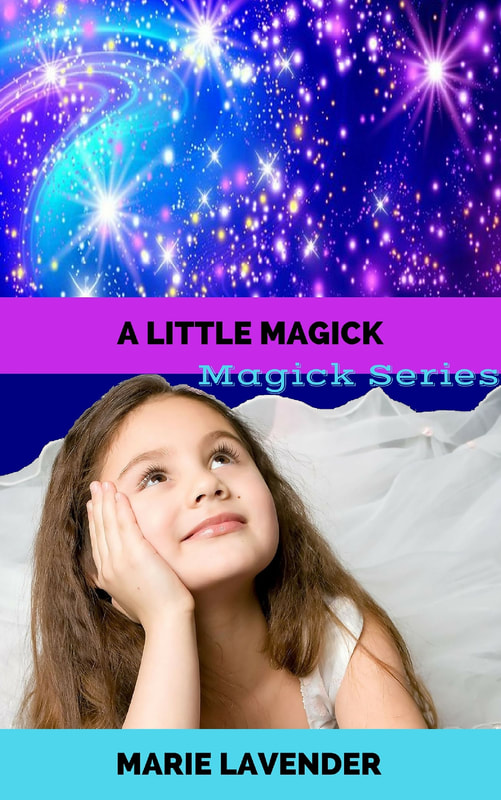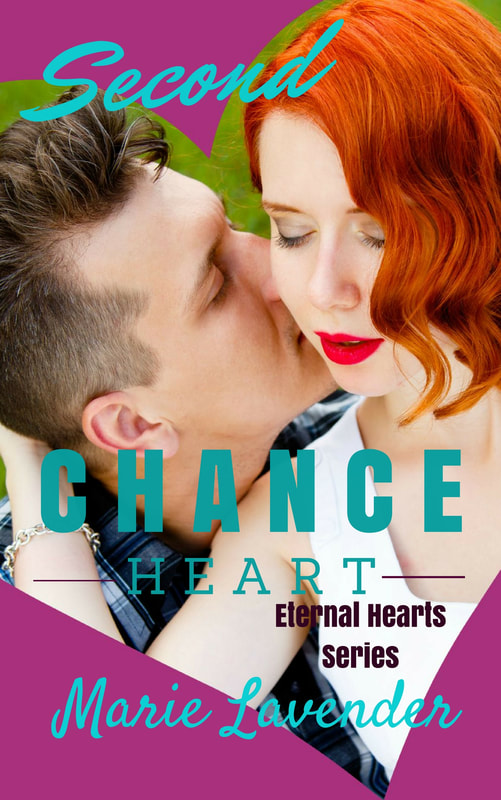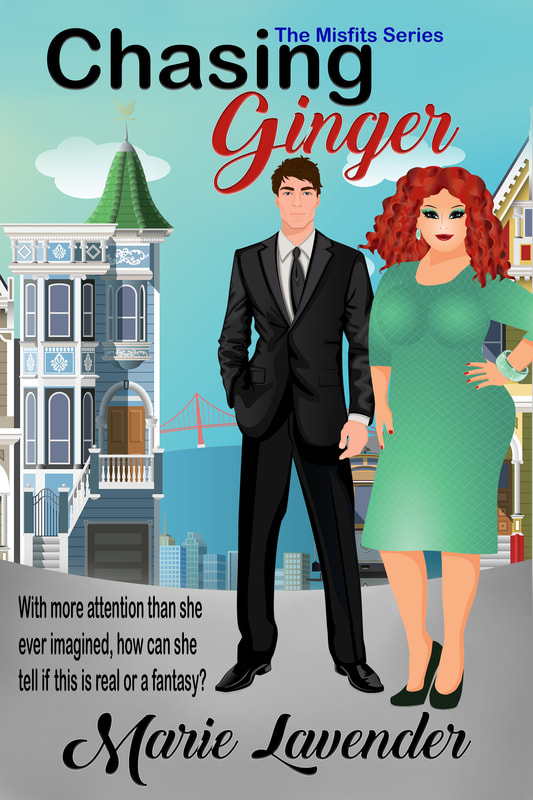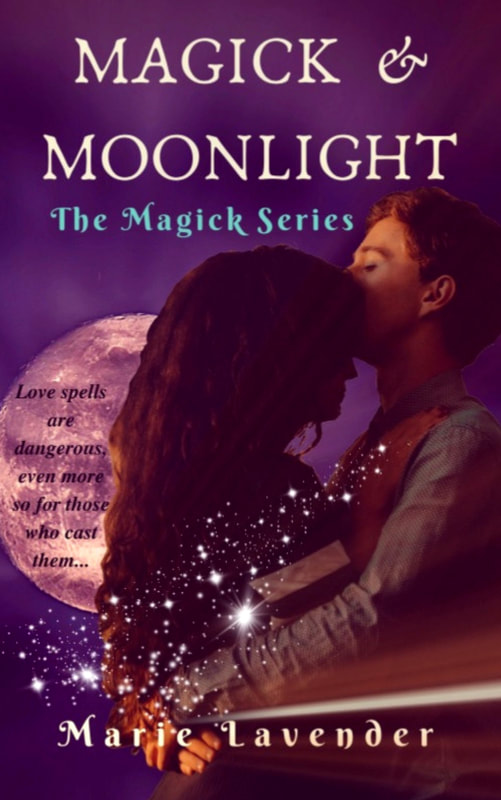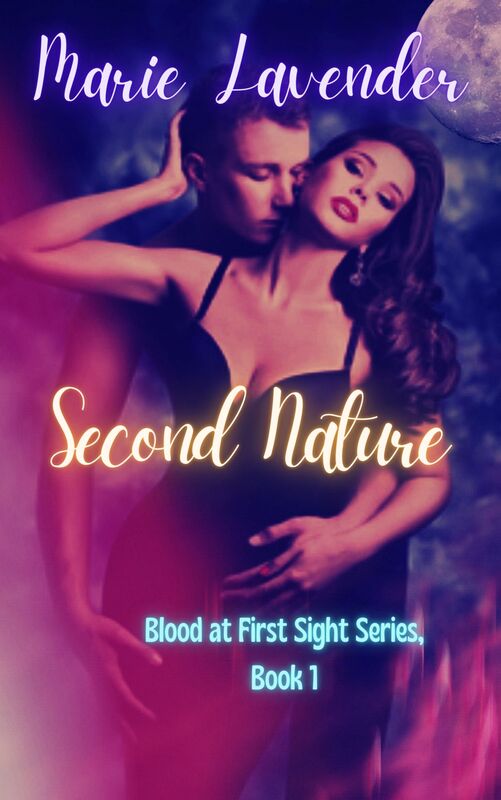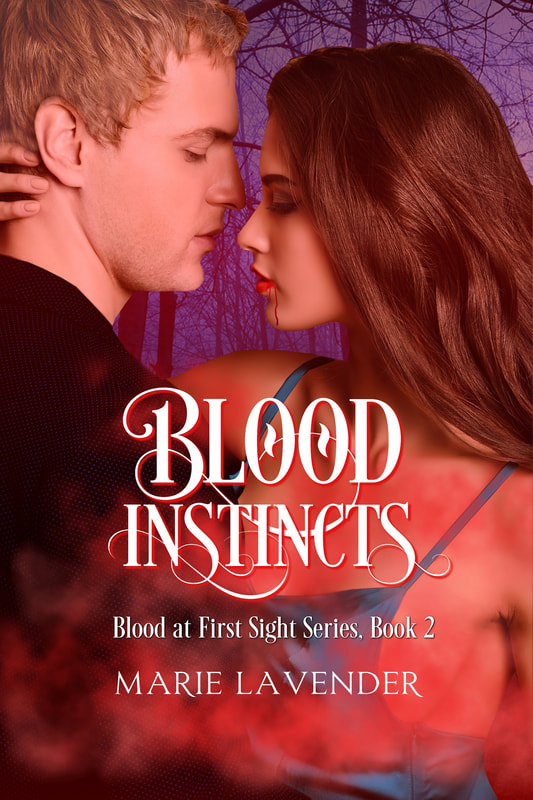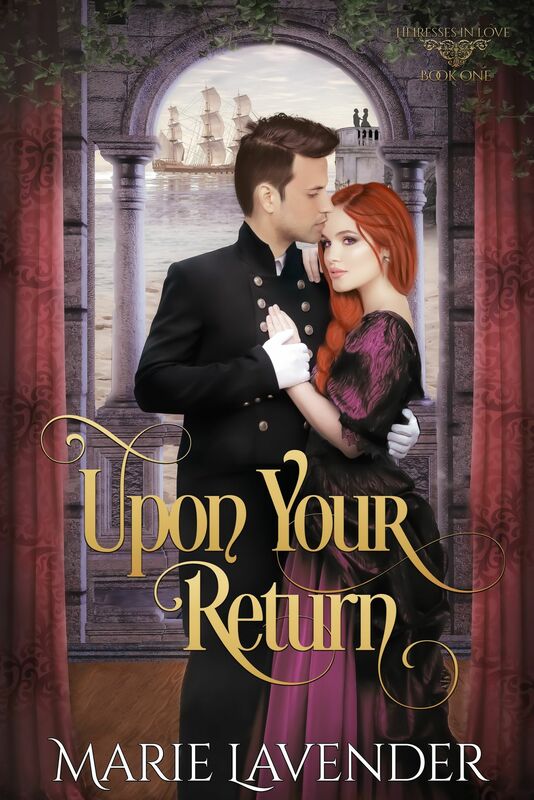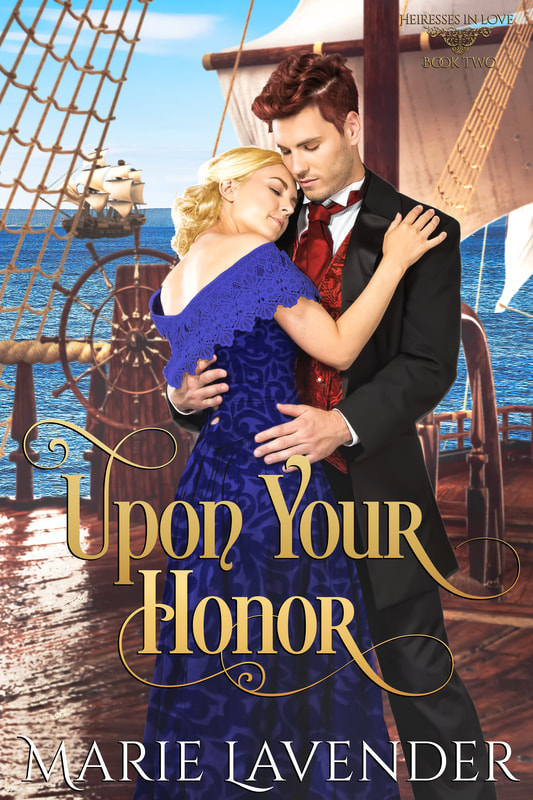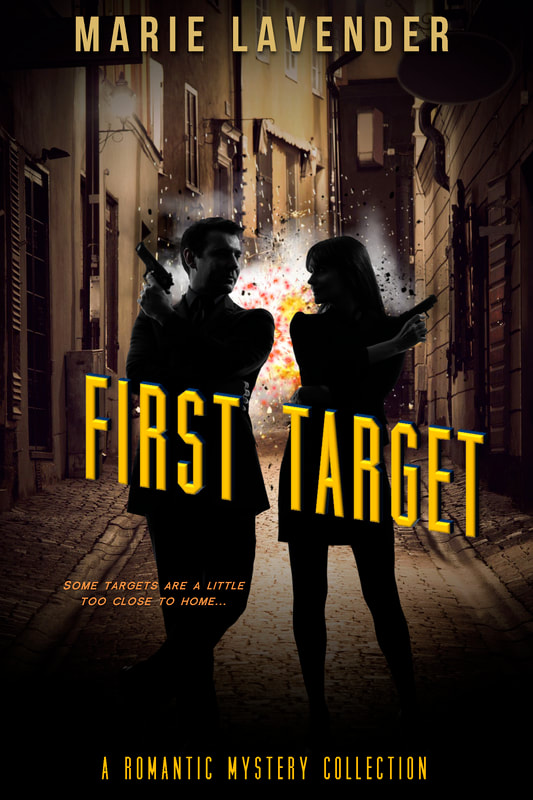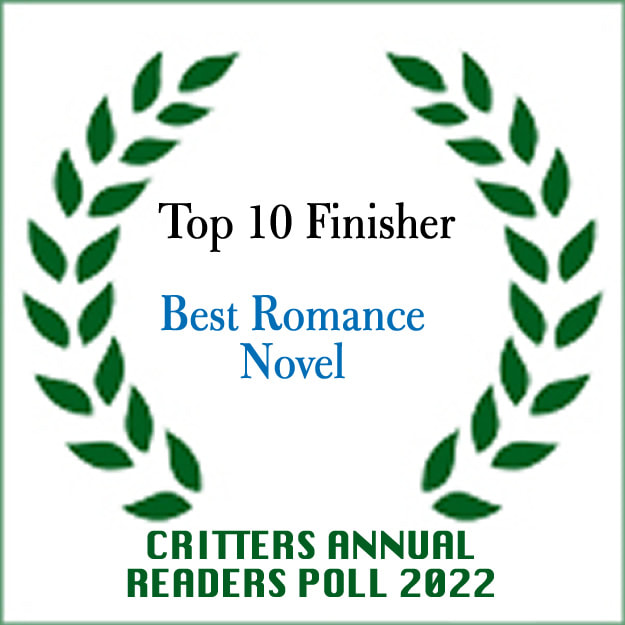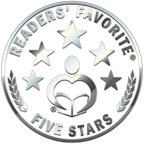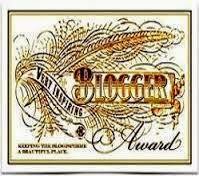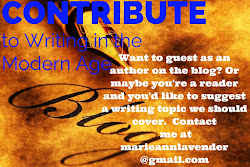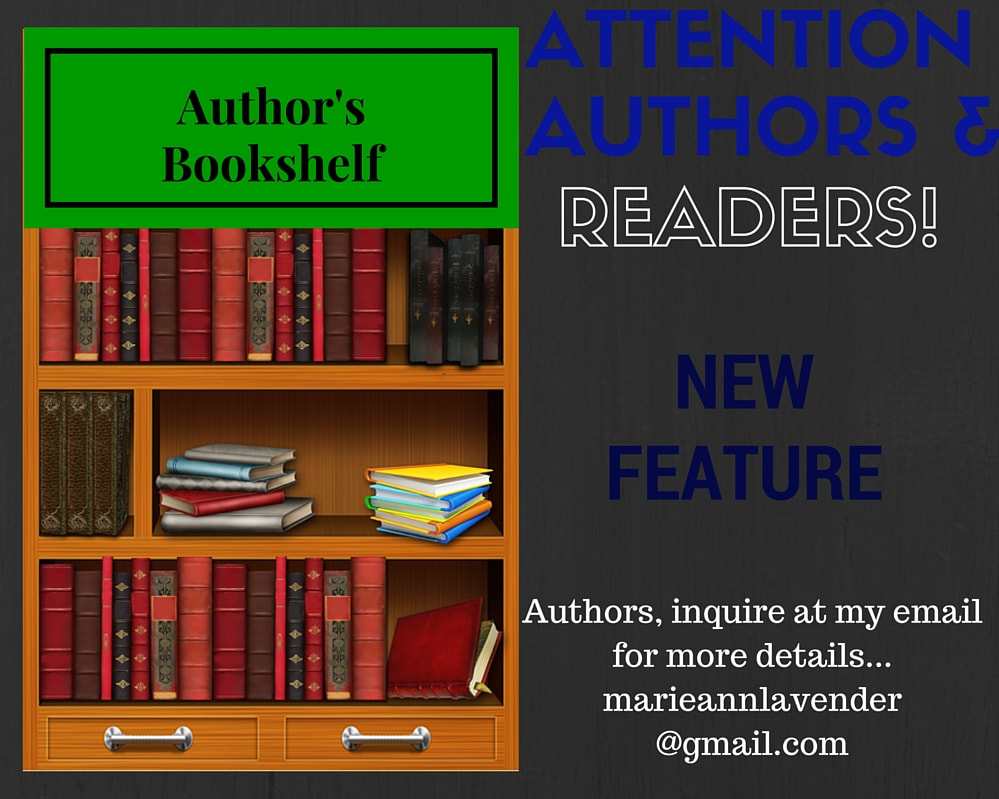|
Please welcome our guest reviewer today! Let’s see what she has to say. Take it away, V.B… Thank you! ♥ Brown Sugar & Spice by Mathis Bailey This book tells Pierre’s story as he’s recovering from breaking up with his fiancé. It’s detailed and easy to read, with poetic descriptions that put you right there with Pierre. it’s a nice follow up from the first book in the series. Pierre goes on an epic journey in three parts. He loses his roommate and gains another, then loses his job and looks for another. In the meantime, he revisits his Bahamian roots when he spends time with his family after his mother’s father passes away. But Dre keeps coming back. Then there’s London with his temptations and limits. Pierre stays strong and stands up for himself. He ends up jobless and single still, but on the cusp of something big with Zola. And he’s in a better place on his own than he was with either Dre or London. I look forward to the following books. I recommend reading this to take a journey of recovery and friendship, with a smattering of love. The friendships and families in this book are fantastic, as is the food. The sex scenes are hot, even when they stop before the finale. We all can use some reality when dealing with our troubles. It was interesting to see how Pierre dealt with his. He came out on top, after all. NOTE: I was provided a copy of this book in exchange for an honest review. I give this book 4 stars because it was full of complex people and gave me the taste and smells of their lives. Book Blurb: Pierre Jackson loses his gusto for cooking after breaking up with his wealthy fiancé, De’Andre Harris. He is beckoned to leave the comfort of his country when he receives a disturbing call that there’s been a death in the family. He meets a Southern Belle who becomes his roommate, and she propositions him on opening a bistro. Pierre is lost and confused, and he doesn’t know what to do. His faith is challenged like it has never been before. Note: This is the sequel to Confused Spice, book 1 of the series. Universal Reader link: https://books2read.com/u/bMV8eA Here’s an excerpt from the book… PROLOGUE STARING AT ME was a perfectly cut piece of meat. Two inches high. Cooked and seared to a caramelized color. I sliced into it, and the knife sunk deep into its flesh hitting the bottom of the white plate. The clear juices flowed onto a bed of creamy truffle mashed potatoes and cauliflower. I stabbed my fork into the tender meat and tasted it. I let the flavors dance around my mouth like two passionate lovers tumbling between the sheets. I chewed slowly and pensively while an army of flavors massaged my tongue. Th is was almost better than sex. I said almost. This meal was not harsh. Not ugly. Not even remotely boring. It was handsome and satisfying. It filled me with excitement and possibility. All doubts and uncertainties melted away. All the joyous noise tuned out. I was loving every minute of it. I came to the conclusion that food was my confidant. My salvation. My peace. My friend and sometimes my lover. This was the kind of food I always dreamed about being catered at my wedding. CHAPTER 1 I STEPPED OUT of the Uber to find a missed call from De’Andre Harris. What the hell? What could he possibly want? My fingers hovered over the keys as I thought about texting him back. It had been a year since I left him. I was tired of his down-low, cheating ass. But what really was the nail in the coffi n was when he got his intern pregnant. However, I learned later from Dre that the baby wasn’t his. Well, you see, the woman actually lied. Turns out she was obsessed with him. She had made up fraudulent medical records and decided to come clean after Dre threatened to get her fired from CBC News. After he told me this, I wondered if he thought I would come running back into his arms. He had left a voice mail. I waited until I stepped into my apartment to play it. I sat on the sofa and listened to the familiar voice flood my senses. He was in town, visiting his parents at their new vacation home. His parents were throwing a housewarming party, and he invited me to come. I listened to the message over and over, at least ten times, savoring his deep, sexy, voice. Studying the cadence of it rising and falling to see if he missed me as much as I missed him. The way he said “Pierre” sent electric waves through my body. I wondered if he’d changed. I wondered if he was less confused about us. There was an ongoing battle within me. Why was he inviting me to this party? One part of me was Team Stay Yo Ass at Home, and the other part was Team Go Get That Dick Before It’s Too Late. I guess it wouldn’t hurt to see him. Intriguing! So, what are other people saying about this series? “The plot becomes increasingly absorbing…an excellent read.” —Kirkus Reviews “Bailey’s prose is beautiful…it is sprinkled with stunning descriptions and engaging dialogue…It’s a new, exciting experience.” —Manhattan Book Review “Be warned: don’t read this book when you are hungry.” —Scandalicious Book Reviews “Confused Spice is an eclectic modern read that weaves family, friendship, sexuality, and self-discovery.” —San Francisco Book Review BOOK INFO: AUTHOR: Mathis Bailey TITLE: Brown Sugar & Spice GENRE: LGBT Multicultural Romantic Fiction/Food Fiction RELEASE DATE: June 17, 2019 PUBLISHER: Ingramspark ISBN/ASIN: 9780995919327/B07T2FMFW2 OUR RATING: 4 stars REVIEWED BY: V.B. “Can Do Indie Author” Guest Blogger/Reviewer Bio:  V.B. is an indie author who writes romance and Sci-Fi, and voraciously reads anything (with some limits). When she’s not reading and writing, she’s working a day job to pay for her truck habit and puttering around her house. Here is the whole book series... Great! Thanks for this review, Virginia, and for stopping by the blog! :) Check out our latest Writing in the Modern Age blog post here.
0 Comments
Please welcome our guest reviewer today! Let’s see what she has to say. Take it away, V.B… Thank you! ♥ Requiem for Barbara by Branka Čubrilo This book tells the story of a daughter’s journey to understand her impressively complex mother who died too young, and frankly lived life too hard. Through a series of letters and visits with her father, her mother’s parents, and her mother’s lost love, Lora gets a taste of her mother as a person. But, getting her questions answered didn’t help her as much as she’d hoped. The writing enabled me to take the journey with Lora in an never ending pursuit of truth through knowledge. At the end, she got what she thought she wanted, only to learn this did not give her the results she’d hoped for. Finding our place in this world is hard. And the only way to get there is to experience situations like Lora’s. I found the book cathartic and confusing at times…which was how I think Lora must have felt. Meanwhile, it helped define what a true identity crisis can feel like. And it gave me a taste of the immigrant experience. NOTE: I was provided a copy of this book in exchange for an honest review. I give this book 4 stars because it was full of complex people and reflected true living. Book Blurb: When Barbara dies in Sydney, Australia, her daughter Lora finds a series of hidden letters addressed to her estranged father, Ted. Upon reading the letters, Lora realizes that she never really knew Barbara, except as a mother. She uncovers family secrets, sad and hurtful lies, and an array of fascinating people she never knew had made an impact on her mother’s life. Spurred by these new facts and discoveries, Lora decides to travel to Europe, to her mother’s hometown. In a chance encounter, she meets Davor—a world-famous, yet mysterious figure who was the cause of both Barbara and Lora’s happiness and sadness, as these emotions emerge entangled, intertwined by his story and fascinating past. The novel traverses Sydney, London and Düsseldorf, where the characters grapple with identity, belonging, and how we find solace amongst life’s biggest challenges and questions. Universal Reader link: https://books2read.com/u/3JelNA Here’s an excerpt from the book… My mother has died. For days after her burial, I did not know where to turn to. I am eighteen years old. I only had her; she died believing so. She left me a small apartment, furniture, paintings on the walls, a computer desk, and the computer on it. My first thought, my first impulse, was to sell all her belongings, to liberate myself from the unbearable pain. The pain sat on my chest and shoulders and in each moment, it seemed to me that mother was going to step into the living room from her study, deprived of sleep. The pain never lessened, but I understood that all around me was what was left to me after her passing away. Whatever I looked at, it spoke of her. Soon after her death, I sat at her desk in her study. My mother was a writer, and that was the way she tried to make our living. I always believed she was the best writer in the whole wide world . . . but she didn’t have much success. She published several short stories in women’s periodicals, a collection of poetry . . . she was far ahead of her time. Sitting there at her desk, I started to pull the drawers out to examine their contents. The contents in the drawers were in perfect order―which was not typical of my mother. She was not the victim of any kind of order. In the lowest and widest drawer, I found a cardboard folder tied up with a yellow ribbon. On the folder was written ‘Letters to Ted’. So, it looked like―she still remembered Ted. It was quite a thick folder as it contained numerous sheets of paper. I started to read the papers in the order they were placed. Hi Ted, It was raining on the day you walked out. Miserable, it looks like rain accompanies all separations. I can’t even call it separation, as you left without a word. Lora came in and asked me what was written in the letter I was holding in my hand. I said, “Ted’s gone”. She fell silent. In her angelic eyes, I saw sadness. She did not cry, her petite, narrow face battled with a wild storm of emotions. Then, she said quietly, “He’s gone for good.” She knew that you had gone forever this time. I nodded my head. I could not utter a word, I was afraid of my own voice. She never cried for you, Ted. You coached her how to handle her emotions. After a while, they called me from her school. They told me her marks had dropped; her eyes were red and teary, often. I explained that her father had left us. Her father, Ted. You (who would doubt it often), you are her father. There were too many discrepancies between us, Ted. When we got married, I was already pregnant. I conceived a child with you. When you left, I did not know whether that was better or worse for Lora. We were teaching her different things, constantly. The things that were valuable and honorable in my culture and tradition were unimportant and cheap to you. You had contempt for tenderness, calling it weakness; you mocked sincerity, calling it indiscretion. The things she had to hide from you she would whisper in my ear at night when I would come into her room to tuck her in. You would say, “Why are you covering her five times every night? You will spoil her, make her weak. Let her toughen up.” Why did you allow her to walk the streets barefoot in winter? It used to horrify me. It used to horrify me! You never asked me anything about my country nor about my past. Why? Were you afraid I might ask you the same questions? It all was below your interest, below your level. And so, my own past was suppressed in some strange liminal space where I had sealed the doors tightly shut. (They were sealed with padlocks, one thousand tons heavy, a thousand tons of silence, a thousand tons of concrete . . . with padlocks that seemed as if they would never be unlocked, or broken, with padlocks rusted like the ones in the stories of locked princesses . . . like the ones in the stories with a tragic end, because the main protagonist fell ill of a rare illness that came from a silence weighing one thousand tons . . .) But look, now I want to tell you: I had my country, and I had my past. Even though it looks like a dream now, dreamt long ago (which I dreamt when I was very young), but the one I still remember. You hid your past, for you were not proud of it; it was not ‘good enough’ for you; therefore, you narrated a different one. I could not talk about my past because you were not interested in it (as if it were shameful). But I was proud of it. My first and only love was a painful affair. I left because of him, believing (still too young to understand) that I would forget him. Six months have passed since you left. Lora has never asked about you. Since you left, she has been very quiet, her self-esteem has been very fragile. She has completely lost interest in the violin. When I ask her, what would make her happy, she only shrugs her shoulders and says, “I don’t know.”’ That’s how the first letter my mother wrote to Ted ended. I did not know were these copies of the letters she sent to Ted, or were they letters Ted never received? Letters never sent. My mother was unhappy. I understood that from the first letter. Anyway, I always felt her sadness. (She carried me inside her!). I believed that her sadness came from Ted’s departure and the difficulties of finding a publisher for her novels. But I was wrong. She was not sad because of Ted’s leaving. I was sad because of it. I felt that in these letters, all her life was contained―the history of her hometown, her family, and the history of one love. I put down that letter and with trembling fingers, I took another. I slid my fingers down the sheet of paper. All her letters were written on the same date―on the second day of June every year until the last one. Every year on my birthday, she wrote him a letter about me and about her. And about Dado – her first love. Why did she do it? Barbara was sad. Her sentences were heavily colored with cynicism. I never knew her being cynical. If she did not love him, why did she reproach his departure so much? Wounded ego? Or was it because he left her without any money? Or was she so sad because of me? Tears were rolling down my cheeks while I picked up a new letter. The letters danced in front of my teary eyes. BOOK INFO: AUTHOR: Branka Čubrilo TITLE: Requiem for Barbara GENRE: Literary Fiction, Drama, Family Literature RELEASE DATE: May 25, 2023 PUBLISHER: Speaking Volumes ISBN/ASIN: B0C6FSWFDD OUR RATING: 4 stars REVIEWED BY: V.B. “Can Do Indie Author” Guest Blogger/Reviewer Bio:  V.B. is an indie author who writes romance and Sci-Fi, and voraciously reads anything (with some limits). When she’s not reading and writing, she’s working a day job to pay for her truck habit and puttering around her house. Great! Thanks for this review, Virginia, and for stopping by the blog! :) Check out our latest Writing in the Modern Age blog post here.
Please welcome our guest reviewer today! Let’s see what she has to say. Take it away, V.B… Thank you! ♥ One Visit by George Veck Grit. Drugs. Sex. Muck. Bleak. Hopeless. Death. Prison. This book holds back no punches. What is life really like when chemicals overtake us? Dark and dreary, yet honest, this book shares the truth of the worst of us. I don’t see this as a crime story. It’s more like the dark side of humanity relating to drug use. The cops are as brutal as the “crooks.” And the brothers try, but cannot overcome their circumstances. I liked the ending, though. I hope Dazzler wins. I hope Frankie survives. But realistically, it’s death or worse coming for them. If Frankie doesn’t OD, he’ll have to get clean. Then what? What hope can he have? What about Dazzler? His options are fewer. If you’ve not been an addict, this book may scare you. If you know an addict or an abused person, this book may give you a taste of how bad things were for them. If you have survived something like this life, this book may give you a cathartic emotional journey, or even trigger you. Finally, this book is functionally hard to read. Welsh, slang, and Welsh-English don’t always make sense to this Yank. The POV shifts between all characters all the time. You may get lost or confused. However, if I were stoned out of my mind, life may feel that way to me, so I wonder if the author made it confusing on purpose. NOTE: I was provided a copy of this book in exchange for an honest review. I give this book 4 stars because it was viscerally hard to read. No one should live like this, but we do. Book Blurb: In sleepy, rural North Wales, Frankie Gibbs, a recently laid off, aimless twenty-year-old on Universal Credit, wants nothing more than to keep his younger brother out of the care system. He single-handedly takes this upon himself while their alcoholic, cocaine-addict, single-parent father, Guy Gibbs, heaps misery on their lives through systematic abuse and his never-ending wild parties. After Guy is sent to prison, Frankie is coerced into opening his home to Justin, an acquaintance from his school days now turned drug dealer, while his own addiction and self-worth spiral beyond recognition. Trigger warnings: One Visit contains themes of mental and physical abuse, rape, and drug use. Universal Reader link: https://books2read.com/u/bMVAM8 What are other people saying about One Visit? “One Visit is an astonishing debut. It's raw, shocking, disturbing, insightful, and dark, pretty much from start to finish. There are flashes of wit but, in the main, it's a full-frontal assault with the truth of physical, psychological, social, and political deterioration in a beautiful part of Wales.” – Persiflage O'Brien, Amazon ''Thought-provoking, shocking, and engaging, author George Veck’s ‘One Visit’ is a must-read crime drama. The horrors that the protagonist and his brother endure as the narrative descends further and further into chaos hone in on the growing problem of drug abuse and violence as a whole around the world, and will speak to readers on a very distinct level. If you haven’t yet, be sure to grab your copy today!'' – author Anthony Avina’s blog “One Visit makes you think while you are reading. It opens your eyes because these characters grow on you and you hope that somehow Frankie and Dazzler will escape their life, while realizing they are too far in for help.” – Karen Lee, Goodreads “The author has passion, feelings, and descriptive writing to a tee.” – Mark Fearn, Goodreads “I really enjoyed the honest look into the life of drug users and the dealers. Yes, at times, it was a difficult read, but the uniqueness of both the plot and the characters kept me intrigued and wanting to read on. I thought the characters were well done. They felt realistic, and although there were some unlikeable characters, I couldn’t help but feel sorry for them.” – Books by Mani blog ''One Visit is a raw, uncompromising novel exploring a grimly compelling and contemporary world of drug addiction with its predators and prey. A brutally good read that’s well worth a look.” – Rose Auburn, Goodreads “There is a strong substance abuse theme throughout the book written in a real way. I recommend this book and approach it with an open mind as the author gives us a look at what many people face daily, the burden of addiction.” – Stuart Brkn Johns, Goodreads “Every little detail in the narrative, the use of slang native to drug users, (I was thankful for a few of the footnotes) all works to blend in this documentary-style book. As a reader, you are invested in a story but still remain a spectator. You can see what they cannot, frustrating as that might be, because you know the outcome of it all won't be sunshine and rainbows.” – Michelle, Goodreads Here’s an excerpt from the book… Frankie Gibbs' sunken eyes burst open. His underweight, sweaty midriff springs upwards and leans against the bed frame, panting and gasping for air. He's safe this time, although it takes him the thick side of sixty seconds to realize. He stretches over to his stale bedside half pint of water to sooth his parched throat. A desperate orange piss level of parched, amplified by shutting his stuffy room’s windows to both keep spiders and next door’s rotten month-old garden bin bag stench out. Dread seeps in, not helped by his first sight of the day, a plethora of grubby beer cans and pot noodle packets varying in age littering the dim room. To add insult to injury, a familiar warm sensation around his crotch area becomes increasingly apparent, a stinging itch on the thigh. An absolute disaster, the level of sting means only one thing, it happened early in the night. Leaving more time for the piss to penetrate the plastic protection sheet and seep into the springy mattress. A peak under the covers at his drenched Primark pajama bottoms confirms all suspicions, it's happened again. Undoubtedly, the chugging of eight pint cans of Galleryx lager to get through a Film4 Steven Seagal marathon headlined by 'On Deadly Ground' played its part. Frankie gazes over to the corner of the room and grimaces, his clean sheet pile's as bare as his stomach. Barring a miraculous end to his father Guy Gibbs' five-year housework hiatus, it'll be a sheetless night tonight. Frankie's unproductive, leisurely bedroom-bound night on the piss all but guarantees that no washing was done. He strips the sheets off the bed so roughly that it shreds down the seam. About time one would say, given its ancient cult status within the family after being passed through two generations. But with a three week wait until his next universal credit payment and left down to one currently dirty sheet, it couldn't have happened at a worse time. Frankie wraps the manky sheets forcefully into a ball and heads authoritatively for the bathroom. A door downstairs clatters and he freezes in the hallway, the location of a catalogue of septic foot wounds caused by the perilously high pointing nails sticking out of the uneven floorboard. Nobody comes up the stairs, all clear. He storms for the bathroom. Off come the damp pyjamas, but his trousers, seemingly glued to his legs, prove far from a breeze to rip off. Stuffed in head first with all of his might, the dirty laundry initially fits in the washing basket. But after Frankie collapses onto the shower cubicle floor without noticing, it slowly expands and ends up hanging out of the open lid, dripping with piss and sweat. He stuffs his head into his hands as tears trail between his fingers. An unnerving racket from the disastrously unsafe shower fitting, that's at least ten years overdue for replacing ensures his anonymity in the paper thin walled terraced house where most is heard between rooms. Horizontal fresh razor wounds on his right shoulder partially open up and ooze out a touch of blood. Meters away down in the living room, Frankie's long-time friend Alfie Fenner stands leaning his elbow on an enormous snooker cue case. Caked in Dax wax, with slicked back hair and wearing a grey suit jacket, he's way out of place in these most unglamorous of surroundings, the presentability of which isn't helped by the unofficial house servant’s self-imposed night off on the piss. Guy's stain-ridden high vis jacket, sported at last night’s heavy pound-a-pint session down at the local, is of stark contrast and befitting to the houses disarray. His supervisor role on a building site, which he's casually two hours late for today, allows him the privilege of washing it as he feels. Guy's youngest son Dazzler makes the most of his teacher shortage enforced half school day by gloomily pursuing Premier League and European glory with Liverpool on Fifa career mode. An epic challenge given his recent ascent in game difficulty up to legendary. ''Space with us, should you be after some proper match practice!'' Guy proposes. ''Full squad I thought?'' Alfie mutters dismissively. ''I'll sack any of the ten journeyman fucks on the squad off, any of them!'' Guy passionately declares in his desperation to sign Alfie, an elite player at local level, up for the pool team that he captains. ''Tuck, tuck, all fucking night! All you past it never had it mugs do.'' Alfie mockingly imitates the delicate type of shot required for tucking someone up. ''You haven't a scooby of our impenetrable dominance in the Bangor league.'' "Maybe if the standard was in the slightest bit stimulating.'' With respect to the Bangor pool league, its standard proves a stimulating challenge to those outside of the sport’s professional ranks. Boasting a plethora of international and county level players, its one frame shoot-out format ensures a challenge for any player to remain unbeaten over an entire twenty match season. Fearing his reputation as a budding professional snooker player will bring out the best in his opponents, Alfie finds it safer to pretend he's above that level. ''Div one champions last year, Fenner boy, I'll have you know.'' Guy proudly reminds Alfie of the pinnacle of his eleven years as captain. ''Not just on about the pool though, am I, rammed full of janky munters that club of yours.'' ''No way! More student p*ssy down there on a Wednesday than you could fucking fathom.'' Indeed, it is a hot spot for 'student p*ssy', not that Guy stands even the slightest chance of pulling a single one of them, which consecutive calamitous failed attempts has proven. Despite the fortune of a relatively handsome face and strapping physique, Alfie's dirth of pulling power, subsequent inferiority complex, and anger towards women has lately developed into a baseline curiosity in the incel community. ''Oh, right yeah, let's say it is. Why then is it you skulk off to Vietnam, fucking flower seeking.'' Alfie jabs Guy in the crotch with his cue case. ''That grubby little chode of yours senseless, for your entire month of paid holiday, every bastard year?'' Guy's vigor diminishes, all but crushed by the damning summary of his rigid optimization of leisure and free time. ''Yeah well, that's not all I do out there, is it?'' Other than the hotel’s two-star hygiene rated kitchens all-you-can-eat buffet, where he stocks up on energy for the following day’s conquests, it is. ''Won't mind taking Dazzler with you then?'' Alfie optimistically asks. Guy shudders at the mere thought. Brothels that know him on first name terms, narrowed down to his favorite three that he rotates for daily visits on his trips, wouldn’t let the boy through the front door, not like the unregulated good old days. ''Fearful all the birds will have me instead.'' Dazzler sarcastically chimes in without taking his eyes off a crucial Fifa EFL cup semifinal clash with Huddersfield that he holds a slender one nil lead in. Deep down, Guy knows his womanizing peak was over at nineteen after putting on four pounds of flab following a futile attempt to quit his half gram a day cocaine habit. ''D'you think the other reason I piss off for is?'' Alfie fails miserably to restrain the urge to groan. ''Frankie stuck here babysitting again!'' That puts any late night best of nineteen frame slogs, an inevitable ten nil win for Alfie more often than not, out of the question for an entire month. Not just any month, but the last month of practice before his first pop at snookers Q school. A grueling tournament held once a year, that's the only gateway into the professional ranks. It has been assumed that Frankie will serve as his semi willing full time practice partner, should he pull Q school off against the odds. A decision in itself that puts Alfie's slim chances of sustained success into peril, given Frankie's comparatively lackluster ability. BOOK INFO: AUTHOR: George Veck TITLE: One Visit GENRE: New Adult, Crime Drama RELEASE DATE: November 6, 2022 PUBLISHER: Indie Published ISBN/ASIN: B0BLMDGLQD OUR RATING: 4 stars REVIEWED BY: V.B. “Can Do Indie Author” Guest Blogger/Reviewer Bio:  V.B. is an indie author who writes romance and Sci Fi, and voraciously reads anything (with some limits). When she’s not reading and writing, she’s working a day job to pay for her truck habit and puttering around her house. Awesome. Thanks for this review, Virginia, and for stopping by the blog! :) Check out our latest Writing in the Modern Age blog post here. Please welcome our guest reviewer today! Let’s see what she has to say. Take it away, Robin… Thank you! ♥ Haunting in Hartley by Janice Tremayne I received this book for free. This does not impact my review in any shape or form. Haunting in Hartley, by Janice Tremayne, is a gothic horror novel about a young woman who must overcome a malevolent entity that threatens to destroy her loved ones. Clarisse and her husband, Harry, are currently visiting Hartley in Australia. They decide to take a tour with Paranormal Jack, an eccentric man who, much like his name, takes an interest in ghosts and other nightmarish beings. After Harry and Jack run into the supposed ghost of Father Grimaldi, Jack suddenly dies. With time running out, and Harry’s life on the line, Clarisse must find a way to defeat this evil entity that gleefully wants to destroy them all. I’m not going to lie, I definitely empathize with the phantom. We’ve seen the victims he’s gathered, people who have experienced loss, trauma, and grief. Although he was parasitic, I could understand how he was able to lure them in; after all, everyone wanted a safe place to belong, somewhere where they can’t be hurt again. It made sense for Eleanor and Little Charlie. But even so, Tremayne reminds us of the phantom’s darkness, that at the end of the day, it doesn’t care about anyone else but itself. It wants to lure people in, people who have a certain innocence to them, if only to be corrupted. Perhaps the devil behind it feels that the more light it consumes, the more likely it’ll get into heaven. The same could be said with the Catholic Church. Despite the facade it puts up, it nourishes sin more than forgives it. And while so many, like Father O’Hara, may seek said forgiveness, in the end they’re lost. They can’t hope to find it, no matter how many times they lie to themselves. It’s the same with the phantom. I also enjoyed the concept of the chest being a sort of Pandora’s Box intertwined with a Faustian contract. It promises you everything. It lets you see into the future, bring wealth and power beyond your wildest imagination, and yet at the end of it, you’d be lost to it. I’m not going to lie; there are a lot of people right now who would give anything to have that kind of power, what with the economy and all. Moreover, the fact that we’ve seen how corrupt religious institutions can be, regardless of affiliation, can definitely push us into that direction. It’s why we have to have strong morals, why, no matter what tempts us, we need to keep moving forward. The editing could definitely use a lot of work, especially since I felt there were more than a few repetitive phrases. The sentences could’ve flown smoother, and there are times when I felt the author was telling me what was going on, rather than showing me. Despite that, I absolutely loved the plot. I liked how intricate the details were, as well as the descriptions of the ghosts. I would’ve preferred the ending be more fleshed out, but nonetheless, this was a solid book. As such, I would give this book a 3.5 out of 5 stars. Book Blurb: A town under siege. A malignant force plaguing its people. Can this warrior for good cleanse the sickness before they all fall prey to darkness? Clarisse Garcia walks the arduous path of a spirit hunter. Arriving in the small Australian township of Hartley for work, she immediately senses the area is mired in a centuries-old curse. And when a local paranormal expert shares his evidence, the prescient woman finds herself face to face with a malevolent demon. Flirting with danger, Clarisse engages in a battle of wits with the wicked creature. But even as she fends off the foul manifestation’s attempts to sour her faith, she fears she may never escape her high-stakes parlay with evil incarnate. Can she maintain her grip on sanity before the tight-knit community is doomed? Haunting in Hartley is the second standalone book in the spine-chilling Haunting Clarisse supernatural horror series. If you like pulse-pounding tension, scarily dark corners, and thought-provoking dilemmas, then you’ll love Janice Tremayne’s unsettling story. Buy Haunting in Hartley to outsmart a devil today! Universal Reader link: https://books2read.com/u/m2ElDR Here’s an excerpt from the book… Before Father Grimaldi took another step, he heard screeching on the wall directly in front of him. He gulped while his heart started thumping harder. It had been an ominous sound, designed to grab his attention. He took a deep breath and held it while looking disconcertingly toward the wall. A misty haze of light captured his attention with speckles of dust forming patterns of floating particles. The incandescent light came from nowhere, as there were no windows in this room. He lifted his lamp above shoulder height to improve his view in finding where the uncanny sound had come from when, out of nowhere, an icy hand tapped him on his right shoulder then patted him on his back. He stood frozen and tense as he gripped his hands into fists, his heart racing and eyes glued directly in front of him. He shook his shoulders more than once as a tickle went up his spine. It had a skeleton-like feel, devoid of any life or tenderness. It was the hand of a dead man, but with the metaphysical qualities to touch. He turned around sharply to confront the phantom, almost losing his grip on the lamp, to find nothing but darkness in front of him. Was it playing games to appease itself? To control the emotions of others wary of its presence? “They send a man of God to do their dirty work?” said the phantom in an old English accent. “Well, speak up, man of the robe … Announce yourself!” Father Grimaldi turned toward the voice next to the cobalt blue chest. However, the sound filled the room like an echo chamber in a stereophonic tone. “Yes, it is I … Father Grimaldi. And who may you be?” “I am whatever you want me to be … Sometimes, I am something, and other times, I’m nothing … a transient soul, my dear Father, caught up in a sinister game of trickery by the devil.” A faint image of a phantom appeared above the chest—a bearded, middle-aged man with a vintage baker boy cap and a dark grey, double-breasted coat. The phantom was not steady, phasing in and out, but one thing was for sure: it was like looking through a glass window. “I don’t understand this game you are talking about?” said Father Grimaldi. The lamp was trembling in his right hand, and he gripped the brass skeleton key with so much zeal that it left a red imprint on the palm of his left hand. “I am here because I have the power to see everything … before, now, and into the future. But it’s seeing the future that torments my soul the most.” The phantom looked toward Father Grimaldi and pointed at him. “You will not find an ornate cross here, my dear priest.” “You know why I am here?” Father Grimaldi was surprised. “And if you think that was just good fortune, I also know why Father O’Hara sent you here … like he did with all the other priests—to cover his filthy tracks.” There was an excruciating silence, and then … “You know of Father O’Hara?” “Oh, do I know him? More than you think. And if you thought the devil was my only embodiment, have a look at your flock where he lives behind the robe to cover up his dubious deeds.” “So, why did he send me here if there is no cross?” Father Grimaldi asked. “I am not your advisor, my dear priest; I only tell you the way it is. He knows you are a troubled man of the Church, and he fought against your transfer to this orphanage.” The phantom stood up, six-foot-tall, and transformed above the chest effortlessly, looking toward Father Grimaldi with vicious red eyes and sabre-like teeth. “I seek no quarrel with you, evil spirit. I am here because I was sent to fetch an ornate cross and will leave you be.” The phantom rattled in anger with the howl of a wolf, blowing so strongly that it elevated Father Grimaldi off the ground, a foot into the air, then slammed him back onto the dusty cobblestone floor. “Nobody leaves this den of dark souls unless I say so!” The phantom was angered by Father Grimaldi’s proclamation. The door behind Father Grimaldi slammed shut, the echoes vibrating and filling the room with a thumping clap. Everything shook, even the floor beneath him. Father Grimaldi placed his hands over his ears to limit the noise. Then he got off the ground, heart racing and thumping, and dusted the grime off his cloak. Father Grimaldi did not want to show the phantom that he was intimidated by his outburst. “So, what do you want? I assume you are seeking something from me, if you won’t let me go freely.” “You are a clever man, dear priest, but don’t get too ahead of yourself. Better men have tried and failed, and now they grace the fires of hell, ripped into an everlasting dance of the inferno.” The dark spirit hesitated for a moment, gathering his thoughts. “I have a proposition for you, my dear priest.” “And what might that be?” “It is foretold that on the eighth day of the eight month, you will be stricken by a mysterious illness. It will be a condition that your doctors cannot diagnose because they are looking in the wrong place. On the eighth day, you will slip into a coma.” Father Grimaldi swallowed and clenched his hands as he stood up straight, looking directly at the phantom. “You are predicting my death? That is impossible.” “My dear priest, I don’t need to predict because I already know.” The phantom wavered as his apparition disappeared and reappeared again, faintly, as it struggled to maintain a consistent presence. “On your death bed, you will beg me to save you. I do not need to do anything now. It will happen, I guarantee you. But I will ensure the good doctors find the right diagnosis to spare your life.” “And for what? What do you seek in return?” Father clutched the skeleton key stronger than ever before. A trickle of blood dripped from his palm and onto the pebble stone below. “You are a man of faith and believe in the everlasting. You await your God at the gates of heaven when your body passes from the physical state to the spiritual. And like all mortal souls, you will fear death as you reach your final breath and cling to life any way you can.” “I have no fear of death. I will embrace it when my time comes, unlike your fanciful explanation.” Father Grimaldi stood fast and lifted his lantern to get a better view of the apparition. “Ha-ha … Think what you like. When your time comes, you will beg me to save your life. In return, you will become the keeper of my powers, as contained in this chest of everything before it. You will agree to release me from my life of misery in favor of your life.” The spirit of dark souls pointed toward him with his right arm bending slightly. “You will live on and on, with new wisdom never imagined, wealth, power—anything you want!” “So, you brought me here to negotiate my life with you,” said Father Grimaldi. “Do you think I will trade my soul with you, a spirit of dark souls?” “Imagine the power you will have, to foresee any future events, unlimited and only contained by your lack of imagination. You can be anyone you want to be in return. All you need is to become the keeper of the cobalt blue chest.” “You make it sound attractive, but I’m aware you spin your words like a salesman. It’s the devil’s work, and I won’t be convinced by your enthusiasm for the benefits of this dastardly life you inherited.” Father Grimaldi’s rejection angered the petulant phantom. In a split-second, the face of the spirit appeared directly before him with clown-like eyes, bolded in dark eyeliner, and a white face, with sabre teeth, and the fury of a wild dog. Red droplets of blood fell from its mouth, and its tongue dangled in and out like a ferocious animal sucking its lips. His head was so close to Father Grimaldi that his pointed nose touched the priest’s forehead and thick, green saliva dripped onto his cheekbone like icy-cold slime. Purplish, protruding veins covered the fearsome expression, bulging out with every taunt of anger. The smell was like rotting corpses, making Father Grimaldi cough profusely. The handkerchief that covered his face could not stop the caustic odor from penetrating his lungs. “Do you believe me now, my dear priest? Don’t mock me again, or I will unleash the strength of a hundred demons to devour your purified soul.” BOOK INFO: AUTHOR: Janice Tremayne TITLE: Haunting in Hartley GENRE: Paranormal Thriller, Horror RELEASE DATE: May 31, 2020 PUBLISHER: Millport Press ISBN/ASIN: B0819YTL24 OUR RATING: 3.5 stars REVIEWED BY: Robin G. Guest Blogger/Reviewer Bio: 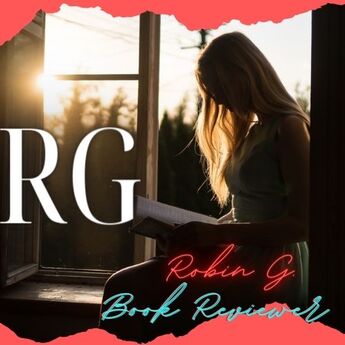 My pen name is Robin Goodfellow. I fell in love with reading after I picked up Fallen by Lauren Kate. I am currently a licensed substance abuse counselor and LPC-A (although I hope to be an LPC soon). I was also a former math and special education teacher. Although I tried going to medical school, it didn’t work out. On the bright side, I’ve got more time for reading and writing! Mental health is a personal passion of mine, as is crochet, and annoying my husband. Awesome. Thanks for this, Robin, and for stopping by the blog! :)
Check out our latest Writing in the Modern Age blog post here. 5 Things Every Author Should Know About Working with Editors: a guest post by Rose Atkinson-Carter Congratulations, you’ve just finished your first draft! Or second… Third… Tenth? Writing a book is an exhilarating experience. Taking an idea from conception through to publication is as rewarding as it is challenging. Understandably it’s a very personal experience. After all, you’ve spent countless hours bringing your book’s world to life. Which is why you should find an editor who will not only do justice to your story but will also help you improve as an author, too. They may wield a red pen to kill your darlings, but it’s only to make your diamond truly shine. So, in this post, I’ll be sharing five tips to find the right editor for your project, and to establish a successful collaboration. 1. Find an editor with experience in your genre. This cannot be stated enough. Unless you’ve decided to write in a market you don’t know, to an audience you can’t picture with stories you wouldn’t normally tell, chances are you wouldn’t want an editor doing the same thing, too. Most authors pen a novel that bursts forth from them because of what they read—as well as what they wished they could read. So while you’ll have research to do in understanding the wider market, picking an editor who understands market expectations and knows what your readers love will be better suited for your partnership. 2. Define the type of editing you need. Not all editors are created equal. And not all editors service the same needs each author may need. Understanding the different types of editing may be a good place to begin when researching which stage your manuscript is at and which editing service you require. Depending on skill and experience, your book could require multiple stages of editing. One editor may be able to perform each stage for you, but specialists exist in each niche for a reason. What are they and where should you begin?
3. Book your editor in advance. The best work truly shines with correct editing and redrafting. Therefore, it’s not a process you want to rush. Many editors can edit your manuscript quickly for a fee. But the trade off can be quality. The editing stages of a novel can be daunting for the author, but just as much pressure exists for the editor, too. They want to give you the best work they can, and they want to help make your book the best it can be. So allowing enough time for each stage to happen should be paramount in your decision process. Taking in comments, redrafting new ideas, re-editing the new changes — each stage requires focus and thinking. And time. Regardless of if you’re getting your book ready for self-publishing or submitting to an agent, giving yourself enough time will help keep your fears in check. 4. Ask for a sample edit. If all the boxes have been checked and you know what service you need, you’ve found an editor in your genre you like, then the next stage is asking for a sample edit. Many editors offer this service for free. They may ask for the first page or first thousand words, either way they’ll give you an idea of how they see your idea and how to help. If your book sings in the way you hear it, chances are they will too. Which means they’ll help it sing louder with their editing. At this stage, costs can be discussed. You’ll receive a quote on the entire manuscript. But many editors will also have an approximate cost depending on word count. 5. Trust their expertise. At the end of the day, a good editor will explain their decisions and suggestions, and ultimately help you grow. They want it to read as professionally as you do, so this means some great writing will be lost in the process. It’s not personal. While this sounds scary, a book is a path of decisions—deciding which routes to go down and which to not. Would you trade cutting your favorite line to expand upon a paragraph which deserves more attention? I know I would. Editors are objective eyes that want you to write to the best of your abilities. A certain level of trust is required in this partnership—they understand it’s your book baby. But while they may offer suggestions, their word is not law. The best editors are teachers at heart. If your book isn’t up to snuff, they’ll give you directions on how to fix it. If your story is vague in some regards, they’ll help mold your idea and foster your talent to reach it. Think of an editor like a Sat Nav. Both of you know the destination, and the right editor wants to help you get there in not only the quickest time, but to enjoy the journey as well! Guest Blogger Bio  Rose Atkinson-Carter is a writer with Reedsy, a marketplace and blog that helps authors with everything from how to make an audiobook, find the best writing software, to hiring a ghostwriter and everything in between. Check out our latest Writing in the Modern Age post here.
What and Why Do I Write: a guest post by Branka Čubrilo On June 17, 2023, in a spacious and architecturally appealing rooftop ambience of Mosman’s Fernery function room (Sydney, Australia), I had for the third time (over a period of 23 years) a book launch for my novel, Requiem for Barbara, published in May 2023 by my American publisher, Speaking Volumes. The event was well attended by about 60-70 people, just the right number to completely fill the space. The special honor this time was to be introduced to the crowd full of anticipation by my one and only daughter Althea. It was a three-hour event, and in her speech, Althea explained her experiences of living and understanding a mother who is an author. She detailed the differences of comprehension from a child, to her adolescence and finally adulthood. For me, I believe for all present alike, it was a revealing, touching, and humorous account. After her speech, she read the poem “Barbara” by Jacques Prévert, accompanied by classical guitar, “Preludio de Adios” by Alfonso Montes. This piece of music was chosen by the performing guitarist Su Keong, because he said, “It is a sad and nostalgic composition by Montes written at the time he defected from Venezuela to Germany”. The guitarist, Su Keong, found it “to be the appropriate piece for the ‘Requiem’ title theme of the book”. For the occasion, I wrote a speech, my address to the audience to make them understand what I write, why I write, and what writing means to me or to a writer in general. I’d like to share this speech with a wider audience because I received many congratulations for it, learning from the audience that this speech might interest and enlighten many... Very often, in interviews or privately, I get asked - what do I write about? Or what is my genre? I don’t have a genre. I write about life. How do you deal with what you’ve been dealt by life? Especially, if you have been dealt a mess. Mess varies from person to person, from culture to culture, from family to family. So, the question is - what do we do about it, if the only freedom we have is what we do with the life and the mess we were born into? I develop well-structured, many-layered characters who grapple with the big and small questions of life. They are always in search of meaning, of reason, love, beauty, in search of home and ultimately of God. I write about love, but I don’t write love stories. I write about human suffering, about wars, migrations, broken homes, broken hearts, and broken countries. About broken souls and broken promises. I am concerned with the big questions of human existence - the meaning of suffering; about pride, overzealous and unnecessary national pride that often leads people astray; about freedom, the shadow self and all of the shades in between two extreme emotions. My characters are lost, often in moral dilemmas during various life crises, searching for truth. I was, and I am a person, a writer who has always been in search of that elusive bird, the Truth - it can show us how insufficient our knowledge is, be it academic knowledge, intuitive or spiritual. We are always floating on the surface of the truth, a partial truth learned in our family, educational institutions, or through mainstream media. Truth is elsewhere - that is the reason why we can’t grasp the meaning of complex but simple questions as well. My interests are psychology, though not popular psychology of the New Age, but rather my amazement with what lies deep down in the human psyche that governs our behavior, our choices, and ultimately our deeds that we are not proud of; then my interest lies in philosophy, not particularly of any philosophical school, but rather the personal philosophy of characters that they develop over the course of their lives; and my personal interest lies in exploring religion, Christianity, and often my characters grapple with never reaching the truth about the existence of a benevolent being that runs the universe or their small lives. I write how much we need love, yet how elusive this notion is, how it is hiding from us, how it is leading us through mud and thorns – per aspera ad astra - in the simple human need and wish for always more -- love. Love, such a desirable companion, shows its face and then it hides, dragging you through tremendous experiences and the sharpest pains to show you that it needs a life-long dedication to master the art of loving. How can we find and keep love when we are unable to participate honestly and without fear? How? If I talk about suffering, how many people would lift their hand up if I asked them - have they suffered in their lives any kind of heartache, hardship, loss, depression, et cetera? Unfortunately, life is about suffering, about search, about growth. Look, I don’t want to scare you, to put you off, believing that I am a depressing writer who like a vivisector with a sharp razor cuts through life’s miseries. I show life in all its glory: the bad and the beautiful. Therefore, I write about kindness, where it can take you if you are committed to doing noble deeds; I write about lost but found happiness, even when the tunnel looks like a never-ending black hole. I write about random, destiny orchestrated, encounters which change one’s life. I write about injustice and justice. I write about beauty, governed from my inner need for beautiful art, beautiful scenery, or the beauty of someone’s soul or character. I don’t paint black and white pictures, I always look for balance in my life and in my writing. I aim to be an objective observer. I observe people, listen attentively to conversations. I soak the atmosphere of a place, of a mentality, observing everything around me, thirsty to know and to use all of my feelings to enrich my mind, hence, to enrich minds and souls of my characters when I sit at my laptop for a new story. I write about you. My readers find themselves in my characters, in certain situations. In difficult times, they get hope, they laugh and cry with my characters, and I write for me, too, in order to understand my inner world better. I write about human goodness, advancement, courage, hope and redemption. I impart hope and faith. I stir emotions, so you cry and you fear my characters, you pray and laugh with me. I like my brutes, the horrible characters, the ones that you dislike (perhaps just because they have some hidden traits of your own character, so they irritate you). They commit unimaginable deeds, war crimes, their lessons bitter and hard, but eventually justice comes and you sigh the sigh of relief, promising yourself that you won’t ever again have a certain thought, deed or, shall I say, a misdeed. Usually, my leading female characters are physically beautiful women; I show the price of female beauty, the suffering of beauty, not the shallowness of it. My female characters are as well in constant search - with the need to better themselves, they study life through different lessons, through shallow clichés of the fashion world, through the New Age movement, through too many lovers, through art, or again, simply through personal suffering. Many of my female characters are sharp and self-sufficient women, while those that are not yet, are subconsciously yearning to be ‘elsewhere’ or someone better to achieve what they ultimately will become. In my short stories, I introduce humorous, spontaneous larrikins, naïve or care-free people who visit my vignettes just to make you laugh, or open your mouth wide with astonishment with how direct, rude, or quirky the human mind and behavior can be. Therefore, I cover a variety of characters, in different lands, of different nationalities, showing that nationality or culture doesn’t necessarily form the character, the good and the evil, kindness or rudeness, that all human characteristics and deeds belong to all of us, that our creator mixed and spread us equally on this earth in His need to encourage humans for the betterment of oneself and of society as such. And let me finish now with a few more words about the book we are launching, as it has a long life and history. I published Requiem for Barbara a long time ago. Precisely 23 years ago, in 2000 in my native country of Croatia. The book received good reviews and an interested readership; the Ministry of Education purchased it and placed the book in all libraries across the country. The more people that read it, the more often I was asked if there were hidden parts of my own life embedded within the story. People who know me well - my family and close friends - were all convinced that it was a loose memoir about my life. A life that I was in fact living on another continent and feeling all the struggles as a foreigner and young, unknown writer, building their life from scratch. It is an elegy, a sad story about a young female writer who struggles as a single mother in Sydney, without having any kind of help or any family. And after the heavy burden of trying and unfavorable circumstances, she breaks down and ultimately falls terminally ill. When I was writing the story, I was absolutely unaware that a similar destiny was going to befall me. Barbara was a neurotic, artistic woman who utterly adored her daughter; she led a very hermetic life where she never let other people participate. When people used to tell me that I was Barbara, that they could recognize me in her every word, or every deed or emotion, I would just shrug my shoulders, saying, “No, I am not Barbara, she is just a character who happens to be a sensitive writer locked in her own world.” I think a writer writes about experiences they have lived through and people they have encountered, as this is the ground where they feel the most familiar, hence the most competent. Even when the story is set elsewhere, or in a different historical period, the characters will still have traits of the writer or some of their experiences – real experiences or psychological structures in their mind. The majority of readers had believed that it was my own story, many even calling me Barbara, but with the passage of time the book slowly went into history, and I was called by the various names of my other female characters. In 2020, exactly 20 years after the first publication of Requiem for Barbara, I got asked to publish it again in a different language, in a different country, so, the book was published in Belgrade, Serbia. My friends and acquaintances who read Requiem for Barbara 20 years ago, re-read the book, and I received emails or messages from people asking the same question: “When are you going to translate this book into English?” I was never sure if I wanted to translate it, as this story somehow always brought me a profound sadness, for it reflected a time of my life when I was living under lots of emotional stress and adversity. Besides, I had the feeling that I had finished all my dealings with this story and with Barbara herself. But she was a part of me, part of my psyche for many years, and I understood that she needed to live again through new readership. I understood that she was destined to be published and re-published over and over and get a new audience, as if she would gain a new life, a prolonged one, or that she yearned to live forever accessible to many people, in many languages. In this elegy of mine, each chapter starts with a stanza from the poem ‘Barbara’ by Jacques Prévert, setting the atmosphere where Barbara shows parts of her personality to the reader - being a writer herself, she is a poetic, other-worldly soul who struggles with everyday living in a common world, among the people who don’t have the time to listen to the song of her soul nor hear verses of her poetry. The rest you will find in the book that has been published for the third time, and hopefully many more times in many more languages. Guest Blogger Bio 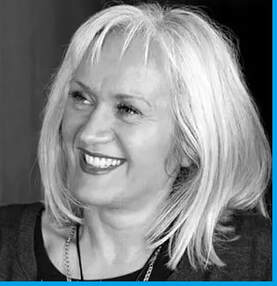 Branka Čubrilo is an international author of eight novels and two short story collections. Branka has lived in Australia, Spain, and Croatia, and has also worked as a radio producer and presenter on SBS Australia, as well as working as an interpreter and translator of several languages. Branka's latest book, Requiem for Barbara, was published in May 2023. Branka's articles and essays and short stories have been published in many online and print magazines. Two years ago, Branka was named one of the top ten writers of literary fiction by her American colleagues in a literary magazine run by the author Caleb Pirtle. All of Branka Čubrilo's work is available at Barnes and Noble, Amazon, both in ebook and print editions. Branka's novels published in English include: The Mosaic of the Broken Soul, Flume - The Lost River, Dethroned, Three to Tango & Other Stories, and Requiem for Barbara. Links https://speakingvolumes.us/author/branka-cubrilo/ https://www.amazon.com/stores/Branka-Cubrilo/author/B0052Y00I6 https://medium.com/@brankacubrilo https://www.instagram.com/branka_cubrilo_author/?hl=en https://www.youtube.com/@brankacubrilo4072 Check out our latest Writing in the Modern Age post here.
Please welcome our guest reviewer today! Let’s see what she has to say. Take it away, Cassandra… Thank you! ♥ Miscreants, Murderers, and Thieves anthology - organized by Samuel W. Reed This was quite an interesting book! As a lover of crime fiction, this book was right up my alley. Each story was great on its own with surprise twists. As a whole, the stories make for a wonderful read for crime lovers. I was hooked from the very first story. The Temperature at Which Love Freezes by Katherine Tomlinson was one of my favorites. A story of revenge for a cheating husband. I definitely loved the twist at the end. Murder at the Magic Castle by Gabriel DiDomenico leaves you with an ending that will shock you. What I loved most about this book was the crime element. All the stories were well-written with relatable characters you want to cheer for, villains and good guys alike. There was nothing about the book I didn't enjoy. I give it 5 stars and would read it again and again. NOTE: I was provided a copy of this book in exchange for an honest review. Book Blurb: Take a tour through the minds of thirteen of today's most talented independent authors in a crime anthology like no other. Miscreants, Murderers, and Thieves hosts a cross-section of indie writers from all across America in a unique compilation of diverse voices set to take you on a journey beyond your wildest imagination. From aging detectives trapped in a magic house of hell, to a doctor with a fascination for the macabre, to New Century City, where superheroes and supervillains battle it out for supremacy, this is a genre-bending short story collection guaranteed to thrill. Featuring contributions from award-winning authors, screenwriters, and wordsmiths such as Don Bapst, David Beeler, Shawn D. Brink, Dori Ann Dupre, Gabriel DiDomenico, Dane G. Kroll, Ethel Lung, Casey Mensing, Suzanne Crain Miller, Samuel W. Reed, Katherine Tomlinson, Will Wallace & Nicholas Zeman, with illustrations by Jared Sloger. Universal Reader link: https://books2read.com/u/boqXR1 Here’s an excerpt from the book… With a last look around, Jonathan exhaled a sigh and trudged back up the walkway to the front door. He was mildly surprised to find it wouldn’t open. One of the first things he’d done when he and Kaye had moved into the house was change the lock so it would shut but not latch unless turned with a key. Probably it’s just frozen in the cold, Jonathan decided. It’s an old house. But after he jiggled the handle and pulled and tugged, it became clear that the door was, in fact, locked. Jonathan was irritated, but not yet concerned. They kept a spare key to the front door beneath a fake rock hidden in the rose bushes that bracketed the front porch like a pair of parentheses. It took him a while to find the fake rock and he scratched himself on the thorny branches of the winterized rose bushes in the process. When he reached down to pick up the phony stone one of the thick, hard thorns embedded itself in his forearm, drawing a single tear of blood, which he ignored as he stared below at the cold, bare dirt. He was puzzled at first, but that soon gave way to a feeling that he identified as … panic. He patted the pockets of his robe, unconsciously searching for a phantom key but finding only a random cough drop wrapped in sticky paper. “Fuck,” he said out loud, closing his robe a little tighter. He considered lobbing the fake rock at his bedroom window but knew Kaye would never hear it. She was a heavy sleeper and she’d been snoring when he left their bedroom. Jonathan climbed the steps back onto the porch and considered his options. The house was at the end of a cul-de-sac, small enough that he and Kaye knew all their neighbors. But the housing crisis had taken its toll on the neighborhood and only two of the houses were occupied. Their nearest neighbors had gone to visit their children for the holidays and the man who lived in the house across the street worked the night shift. Jonathan sighed. The windows on the first floor of his house were all covered by iron security grates. Even if he managed to break the glass, it wouldn’t do him any good; the openings were too small to wriggle through. He walked around the house toward the garage, wondering if he could pry the roll-down door open wide enough to crawl under it. He knelt on the damp, cold concrete to get some traction on the door handle but couldn’t budge it more than an inch. Fuck, he thought again, and then, it’s getting cold. In fact, it wasn’t actually getting colder, but the wind had picked up significantly, making it feel like it had. Jonathan stamped his feet to warm them up, and then tried jumping jacks to get the blood flowing in the rest of his body. The exercise didn’t help. He began to shiver, at first imperceptibly and then so violently that his teeth began to rattle. He started next door with the vague notion of breaking into the neighbor’s house, but halfway across the lawn he tripped on one of the pop-up sprinklers that kept their grass green in summer. He fell heavily and by the time he’d gathered himself, he’d forgotten his plan and returned to the house. He was beginning to have a hard time thinking straight. A few minutes later, it seemed like a good idea to shuck his robe and kick off the slippers, which were now loose on his cold, shrunken feet. By the time he stepped out of his boxers, he was feeling light-headed and calm. He didn’t even see the shadow lingering in the window. *** Inside the house, which she kept heated to 78 degrees against the Minnesota winter, Kaye watched as her husband peeled of his boxers in what she had learned was known as “paradoxical undressing.” It was a sign that the body and mind were starting to shut down in the cold, a symptom of extreme systemic distress. It was 23 degrees outside and the forecast called for sleet and possibly snow before the night was over. The wind was from the north, sweeping down from Canada and dropping the perceived temperature to somewhere around minus 15. That was cold, but not spectacularly cold. Kaye had read that in parts of Siberia empty plastic bags would freeze within minutes in the frigid temperatures; freeze and then crack like glass. She’d seen movies where people were flash-frozen by liquid nitrogen and then shattered like fine china. She’d have liked to have seen Jonathan break into a million frozen shards. But that might have looked suspicious to the police. Better to keep it simple. A lot of people simply freeze to death every winter. She’d looked it up. There’d be no reason for the police to question her story that she’d found him dead on the front lawn after he’d inexplicably wandered out into the cold. They’d find the 25-year-old scotch in his belly in the autopsy and nod knowingly. Most cold-related deaths involved alcohol, Kaye had read. Jonathan always had a drink or two before bed. She knew it was the only way he could stomach lying so close to her night after night. The police probably wouldn’t check his cell phone but if they did, it would be a bonus. The text had come from a burner phone Kaye had picked up the day after their last anniversary, the anniversary where he’d gotten her a $50 gift certificate to Bed, Bath, and Beyond. It had been easy enough to schedule the text to arrive in the middle of the night. The number wouldn’t track back to Lila, of course, but Kaye had attached one of the nude pictures she’d found in Jonathan’s computer. Lila’s skanky face had been clearly visible. It wouldn’t take the police long to find her and to ask her why she’d enticed her lover out of the house on such a cold night. Kaye had watched a lot of Forensics Files. The police wouldn’t find the photo on Jonathan’s computer. Kaye had replaced his hard drive after duplicating everything on the system except for the pictures and the incriminating emails. It had taken her close to a month, but she was nothing if not patient. Kaye really didn’t bear her rival any ill will, but if Lila was implicated in Jonathan’s death, well, it’d be gravy. At the thought of gravy, Kaye's stomach growled. Maybe I’ll make some ham and red-eye gravy, she thought. Once all the commotion dies down. Maybe some biscuits, too. Something that’ll stick to my ribs on such a cold morning. Kaye smiled as she turned back to her cozy cotton bed. She had always loved the cold. BOOK INFO: AUTHOR: Samuel W. Reed (editor, organizer) and Various Authors TITLE: Miscreants, Murderers, and Thieves GENRE: Short Stories Anthologies RELEASE DATE: January 25, 2020 PUBLISHER: Reed Press ISBN/ASIN: B0846Y2J51 OUR RATING: 5 stars REVIEWED BY: Cassandra Jones of cassandra-mywritingworld.blogspot.com Guest Blogger/Reviewer Bio:  I am an author from West Virginia. I write mostly crime fiction, horror, romance, poetry, and even children’s. When not writing, I spend most of my time reading. I love to write reviews for every book I read and I read pretty much anything I can get my hands on. Awesome. Thanks for this, Cassandra, and for stopping by the blog! :) Check out our latest Writing in the Modern Age blog post here. Please welcome our guest reviewer today! Let’s see what she has to say. Take it away, Virginia… Thank you! ♥ Rosemary's Beach House by Linda Heavner Gerald I wish I knew what work this book was based on or mimics. I would classify it as suspense or romantic suspense. Rosemary grew on me over time, and Malcom was a charmer. Lucy and Josh are notable characters as well. I enjoyed watching Rosemary and Malcom’s romance grow while the mystery and tension grew. The first three-quarters of the book are about Rosemary’s life and then her life with Malcom. The last quarter covers her devastation after Malcom’s death. The suspense starts when she and Malcom marry, and the danger is only revealed when the “intruder” finally comes to finish Rosemary off. The mystery is solid. Bountiful clues and foreshadowing keep you guessing. The characters feel real and play their parts well. Also, there was a lot of referring to God, and a thread of Him keeping Rosemary safe by “closing her mouth,” but I wouldn’t call this an inspirational mystery. I recommend reading this book for the story—just to see how it turns out in the end. The writing was a bit tedious for me to read. The MC tells us the whole thing. Only the dialogue feels natural. The rest is a narration. The one POV we never get is Malcom’s. We get his words and actions, but I’m not really sure he loved Rosemary. I think he did, and she “said” he did, but we get none of his thoughts. This could be my bias. I was so busy looking for clues in the mystery that I became suspicious of the love story. Finally, I’m tired of vilifying mental illness by making the murderer “crazy.” Anger, betrayal, and jealousy are all good enough reasons to kill. That said…I know that plenty of “craziness” causes death, but using a diagnosis to explain “why” cheapens the worth of those diagnosed as such. NOTE: I was provided a copy of this book in exchange for an honest review. I give this book 3 stars because the MC survived awful events with her soul intact, and supported those around her. Book Blurb: Rosemary Lewis divorced her husband after she discovered him with another woman. Suffering from depression at her loss, the young woman threw herself into work as a registered nurse. Then, she met Malcolm Beach who represented her dream. Together, they did enjoy a perfect life. Devotion from her new husband thrilled her as they traveled all over the world. Sailing became their pastime until the sudden death of her love. Once again, Rosemary found herself devastated and alone. Suddenly, an unknown foe threatened her very life. Why did this begin after the death of her husband? Slowly gleaning bits of information, she discovers that Malcolm's previous lover was insane. Is this the one who makes her life hell? Now, a wealthy widow, Rosemary must fight to survive in the beautiful home named 'Rosemary's Beach House'. Universal Reader link: https://books2read.com/u/4EEd6o Here’s an excerpt from the book… Although I attempted to appear as confident as I looked, my hands shook. Before Malcolm arrived, I cut fresh flowers to display on the foyer table. They were beautiful. My problem was I forgot to lay the scissors down, so I held them in my left hand. Just as I opened the door with my right hand, my left one tried to hug Malcolm. Instead, the scissors became entwined in the strap of my dress. Panic overcame me. Spastically, I pressed the blades of the scissors together cutting the strap of my new dress. It was slightly large on me. The entire right side of the stunning dress fell exposing my nakedness. I didn’t wear a bra. Since the outfit was strapless, my breast glowed innocently at Malcolm from my red doorway. My prince looked from my face to my right boob in shock. Moments passed as we stared at each other unsure of the correct response. “Oh, well, I say, RM, you have a welcoming way about you. Never, in my life did I receive this sort of welcome! It is the best! Way to go, RM! I have to say that your boob, which you seem proud to display, looks as succulent as my gift to you. This was a joke, my bag of onions, but your boob outdoes my meager attempt at humor. I mean, I guess this is supposed to be funny, right?” Gently, he smiled while thrusting a huge bag of Vidalia Onions in my face. I knew that I should have closed the door and let this relationship melt away. We weren’t meant to be. Instead, I threw both arms around the good doctor’s neck. Malcolm smelled faintly of intoxicating cologne. Staggering into him with the scissors still in hand, I jabbed them into his right temple. Not very far, mind you, but enough to nick the skin. Now, his beautiful white shirt displayed pinpoints of bright red blood. Will he still smile at me? Dumb as this sounds, that was my thought. I pulled from Malcolm’s embrace to see him hesitate. Oh, no, this is it. My dream is going to walk away. Not knowing what else to do, I cried. This brilliant man was not only famous and accomplished, but he was kind. “Now, now, RM, these things happen. Don’t cry. Someday, we will laugh at all the drama.” Did he say someday? Do we still have a future? I promise not to make another mistake. BOOK INFO: AUTHOR: Linda Heavner Gerald TITLE: Rosemary’s Beach House GENRE: Mystery/Suspense RELEASE DATE: January 9, 2019 PUBLISHER: Lime Pie Publishers ISBN/ASIN: B07MM67SCH OUR RATING: 3 Stars REVIEWED BY: V.B. “Can Do Indie Author” Guest Blogger/Reviewer Bio:  VB is an indie author who writes romance and Sci Fi and voraciously reads anything (with some limits). When she’s not reading and writing, she’s working a day job to pay for her truck habit and puttering around her house. Awesome. Thanks for this, V.B., and for stopping by the blog! :) Check out our latest Writing in the Modern Age blog post here. Please welcome our guest reviewer today! Let’s see what she has to say. Take it away, Jamie… Thank you! ♥ Miscreants, Murderers, and Thieves anthology - organized by Samuel W. Reed A little suspense, a little tiny bit of romance, a lot of plot twists, a little sci-Fi maybe. This anthology has a little bit of everything for everyone. Lots of didn't-see-that-coming moments too. Quick short stories. I did feel as if some of the stories left out some important details and may have been rushed to "finish". NOTE: I was provided a copy of this book in exchange for an honest review. I give this book 4 stars. Book Blurb: Take a tour through the minds of thirteen of today's most talented independent authors in a crime anthology like no other. Miscreants, Murderers, and Thieves hosts a cross-section of indie writers from all across America in a unique compilation of diverse voices set to take you on a journey beyond your wildest imagination. From aging detectives trapped in a magic house of hell, to a doctor with a fascination for the macabre, to New Century City, where superheroes and supervillains battle it out for supremacy, this is a genre-bending short story collection guaranteed to thrill. Featuring contributions from award-winning authors, screenwriters, and wordsmiths such as Don Bapst, David Beeler, Shawn D. Brink, Dori Ann Dupre, Gabriel DiDomenico, Dane G. Kroll, Ethel Lung, Casey Mensing, Suzanne Crain Miller, Samuel W. Reed, Katherine Tomlinson, Will Wallace & Nicholas Zeman, with illustrations by Jared Sloger. Universal Reader link: https://books2read.com/u/boqXR1 Here’s an excerpt from the book… With a last look around, Jonathan exhaled a sigh and trudged back up the walkway to the front door. He was mildly surprised to find it wouldn’t open. One of the first things he’d done when he and Kaye had moved into the house was change the lock so it would shut but not latch unless turned with a key. Probably it’s just frozen in the cold, Jonathan decided. It’s an old house. But after he jiggled the handle and pulled and tugged, it became clear that the door was, in fact, locked. Jonathan was irritated, but not yet concerned. They kept a spare key to the front door beneath a fake rock hidden in the rose bushes that bracketed the front porch like a pair of parentheses. It took him a while to find the fake rock and he scratched himself on the thorny branches of the winterized rose bushes in the process. When he reached down to pick up the phony stone one of the thick, hard thorns embedded itself in his forearm, drawing a single tear of blood, which he ignored as he stared below at the cold, bare dirt. He was puzzled at first, but that soon gave way to a feeling that he identified as … panic. He patted the pockets of his robe, unconsciously searching for a phantom key but finding only a random cough drop wrapped in sticky paper. “Fuck,” he said out loud, closing his robe a little tighter. He considered lobbing the fake rock at his bedroom window but knew Kaye would never hear it. She was a heavy sleeper and she’d been snoring when he left their bedroom. Jonathan climbed the steps back onto the porch and considered his options. The house was at the end of a cul-de-sac, small enough that he and Kaye knew all their neighbors. But the housing crisis had taken its toll on the neighborhood and only two of the houses were occupied. Their nearest neighbors had gone to visit their children for the holidays and the man who lived in the house across the street worked the night shift. Jonathan sighed. The windows on the first floor of his house were all covered by iron security grates. Even if he managed to break the glass, it wouldn’t do him any good; the openings were too small to wriggle through. He walked around the house toward the garage, wondering if he could pry the roll-down door open wide enough to crawl under it. He knelt on the damp, cold concrete to get some traction on the door handle but couldn’t budge it more than an inch. Fuck, he thought again, and then, it’s getting cold. In fact, it wasn’t actually getting colder, but the wind had picked up significantly, making it feel like it had. Jonathan stamped his feet to warm them up, and then tried jumping jacks to get the blood flowing in the rest of his body. The exercise didn’t help. He began to shiver, at first imperceptibly and then so violently that his teeth began to rattle. He started next door with the vague notion of breaking into the neighbor’s house, but halfway across the lawn he tripped on one of the pop-up sprinklers that kept their grass green in summer. He fell heavily and by the time he’d gathered himself, he’d forgotten his plan and returned to the house. He was beginning to have a hard time thinking straight. A few minutes later, it seemed like a good idea to shuck his robe and kick off the slippers, which were now loose on his cold, shrunken feet. By the time he stepped out of his boxers, he was feeling light-headed and calm. He didn’t even see the shadow lingering in the window. *** Inside the house, which she kept heated to 78 degrees against the Minnesota winter, Kaye watched as her husband peeled of his boxers in what she had learned was known as “paradoxical undressing.” It was a sign that the body and mind were starting to shut down in the cold, a symptom of extreme systemic distress. It was 23 degrees outside and the forecast called for sleet and possibly snow before the night was over. The wind was from the north, sweeping down from Canada and dropping the perceived temperature to somewhere around minus 15. That was cold, but not spectacularly cold. Kaye had read that in parts of Siberia empty plastic bags would freeze within minutes in the frigid temperatures; freeze and then crack like glass. She’d seen movies where people were flash-frozen by liquid nitrogen and then shattered like fine china. She’d have liked to have seen Jonathan break into a million frozen shards. But that might have looked suspicious to the police. Better to keep it simple. A lot of people simply freeze to death every winter. She’d looked it up. There’d be no reason for the police to question her story that she’d found him dead on the front lawn after he’d inexplicably wandered out into the cold. They’d find the 25-year-old scotch in his belly in the autopsy and nod knowingly. Most cold-related deaths involved alcohol, Kaye had read. Jonathan always had a drink or two before bed. She knew it was the only way he could stomach lying so close to her night after night. The police probably wouldn’t check his cell phone but if they did, it would be a bonus. The text had come from a burner phone Kaye had picked up the day after their last anniversary, the anniversary where he’d gotten her a $50 gift certificate to Bed, Bath, and Beyond. It had been easy enough to schedule the text to arrive in the middle of the night. The number wouldn’t track back to Lila, of course, but Kaye had attached one of the nude pictures she’d found in Jonathan’s computer. Lila’s skanky face had been clearly visible. It wouldn’t take the police long to find her and to ask her why she’d enticed her lover out of the house on such a cold night. Kaye had watched a lot of Forensics Files. The police wouldn’t find the photo on Jonathan’s computer. Kaye had replaced his hard drive after duplicating everything on the system except for the pictures and the incriminating emails. It had taken her close to a month, but she was nothing if not patient. Kaye really didn’t bear her rival any ill will, but if Lila was implicated in Jonathan’s death, well, it’d be gravy. At the thought of gravy, Kaye's stomach growled. Maybe I’ll make some ham and red-eye gravy, she thought. Once all the commotion dies down. Maybe some biscuits, too. Something that’ll stick to my ribs on such a cold morning. Kaye smiled as she turned back to her cozy cotton bed. She had always loved the cold. BOOK INFO: AUTHOR: Samuel W. Reed (editor, organizer) TITLE: Miscreants, Murderers, and Thieves GENRE: Crime Fiction Anthology RELEASE DATE: January 25, 2020 PUBLISHER: Reed Press ISBN/ASIN: B0846Y2J51 OUR RATING: 4 Stars REVIEWED BY: Jamie M. Guest Blogger/Reviewer Bio: 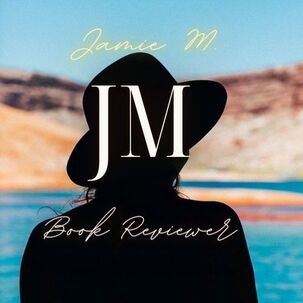 My name is Jamie Manous. I am a single mom with two adult kids, both in college. I also have three fur babies, two dogs, and one cat. When I am not working or caring for my family, I spend my downtime reading and writing reviews for books and products I like. I like reading because it allows me to escape the world for a couple of hours and destress. I have done countless reviews for Amazon, and I have reviewed many authors including Michelle Major, Jo McNalley, Eva Moore, and E.M Shue. Most of the authors I review write Romance/Harlequin. But I enjoy reading genres like Romance/Harlequin, Murder Mystery, True Crime, Historical Nonfiction, and Historical Fiction. On very rare occasions, I read Fantasy Literature like Harry Potter or Twilight. I have reviewed for many years and still prefer a good ole paperback any day and own a personal library with about 7,000 books. Awesome. Thanks for this, Jamie, and for stopping by the blog! :)
Please welcome our guest reviewer today! Let’s see what she has to say. Take it away, Virginia… Thank you! ♥ The Me Too Girl by Lance and James Morcan This is an intense and short read that reflects the #MeToo moment. I recommend it to those who need to better understand those affected by sexual abuse or for those who are suffering or have suffered sexual abuse. It’s especially helpful to help those not abused to better understand some victims’ issues dealing with abusers who have almost omnipotent power over them. Too many victims have no hope or alternative of something else outside or beyond their abusive situation. It was awesome to experience how Suzie found some other way than giving in. There should always be a way out, an alternative, a “something better than this.” Unfortunately, this is not always possible. But Suzie found a way, even using new allies. Though it would have been nice for this to be a true story, this book had to be fiction, because few victims achieve the freedom and peace that Suzie did. This story should remind us all to notice better those around us, to reach out and actually assist those who have no advocate, and to stop abusers whenever they are found. I’m fine with the story being short. Too long or more detail could traumatize readers, especially ones who have lived a life like Suzie’s. The only downside of this book for me was that I wondered whether the authors were trying to advocate for victims or were trying to capitalize on a hot topic at the time. NOTE: I was provided a copy of this book in exchange for an honest review. I give this book 4 stars because the MC overcame abuses and addictions that destroy more humans than not. Book Blurb: Young Los Angeles public relations exec Suzie Fox is being blackmailed for sex by a bad cop, a senior officer of the LAPD no less. Suzie fights back the only way she knows how, and, in the process, unwittingly becomes a beacon, a shining light, for America's Me Too movement and for abused women everywhere. But will justice be served? Universal Reader link: https://books2read.com/u/b5WWp6 Here’s an excerpt from the book… The first I became aware he was waiting for me was when I crossed the street. I was about to enter the building when the patrol car’s passenger door opened and the passenger stepped out, blocking my path. I recognized him immediately despite the fact last time I saw him he wore the uniform of a police officer. Holy shit! Hector Williams, or Heck to his associates, was the LAPD’s Deputy Chief of Police. He was also kind of hard to forget. A hulking specimen, the forty-nine-year-old Williams stood six foot six and towered over all but a rare few of the passersby currently using the sidewalk outside my apartment. That wasn’t the main reason I remembered Deputy Chief Williams, however. We had a history of sorts. A history I’d rather forget. Williams smiled at me as he ran his eyes over my body and made no attempt to hide the fact he liked what he saw. His was a cruel smile and there was no affection in those cold, gray eyes. Glancing at the security camera above the building’s entrance, he smiled again as he flashed his ID card and, turning his face away from the camera, he said, “Hey little Suzie, remember me? I’m now Deputy Chief Hector Williams.” I shuddered involuntarily. I remember you alright. “What the hell do you want?” “Now, is that any way to greet ol’ Heck?” Williams took me gently but firmly by the arm and escorted me a little way along the sidewalk. Whether it was because of the presence of the security camera or the close proximity of his fellow officer in the nearby patrol car I wasn’t sure. Knowing him, it was probably because of both of those things. As we walked, my mind was racing. When I’d last seen Williams I’d been using another name and residing elsewhere in this city – in Venice, to be precise. That was three or four years ago now. Since then, I’d adopted a complete change of lifestyle, reverted to using my real name and relocated to new premises at least three times. In doing so, I believed I’d never see the man again. At least I prayed I’d never see him again. How in God’s name did you find me, Hector? BOOK INFO: AUTHOR: Lance and James Morcan TITLE: The Me Too Girl GENRE: Crime Drama RELEASE DATE: November 5, 2019 PUBLISHER: Sterling Gate Books ISBN/ASIN: B08137BDGH OUR RATING: 4 Stars REVIEWED BY: V.B. “Can Do Indie Author” Guest Blogger/Reviewer Bio:  VB is an indie author who writes romance and Sci Fi and voraciously reads anything (with some limits). When she’s not reading and writing, she’s working a day job to pay for her truck habit and puttering around her house. Awesome. Thanks for this, V.B., and for stopping by the blog! :)
|
Blog Archives
October 2023
Visit our old posts on Blogger instead.
A glance at Marie's booksComing SoonBlog Awards
ContributeCool new feature!
Attention
The fact is…our policy has changed considerably, at least for a while. Check out our 'Blog Policy' for more information about the types of features offered, how you can purchase a guest spot, my policy on review requests, and rules for guest writers. Starting from 2021, I was charging for some types of posts. Of course, there is never a fee for a guest article, as long as you adhere to the blog's theme. I also will not charge for big multi-author events which I host (these are giveaways or participation questions, and it's obvious what materials you're providing). If you'd like to submit a guest book review (no, I don't write book reviews, please don't ask me), I will always accept those and not charge you a fee at all. Starting in 2022, I WILL NO LONGER BE posting new release features, cover reveals, Author's Bookshelf features, author interviews, character interviews, and poetry spotlights. I am far too overwhelmed with other work to do constant blog posts. I'll still be writing my own articles sometimes and hosting multi-author special features. For companies that can afford a sponsored post, I'm willing to discuss a reasonable quote for a specialized article which fits within the blog's theme (No blatant promotions). Email me atmarieannlavender@gmail.comif you wish to participate in a unique post. Feel free to approach me with your creative ideas about a blog post. Slots at Writing in the Modern Age are always first come, first served. Contact us and reserve a spot! Refer to the 'guest schedule' at the top of the screen for further clarification about availability. Thanks for understanding.Disclaimer
Thoughts and opinions by guest authors do not necessarily represent any thoughts and opinions by this website's administrator, nor are they directly endorsed. All writings on the blog are subject to review and editing. Please visit our blog policy to understand the site's theme a little better.Use our hashtag #WritModAge when you mention us!Should you edit your own work? Definitely! - The Ultimate Guide to Editing a BookAre you a technical writer? Look no further for some tools of the trade!Love physical books like me? Check out this cool DIY link!Sign up for Marie's author newsletter! Get on her mailing list @Blog Categories
All
|



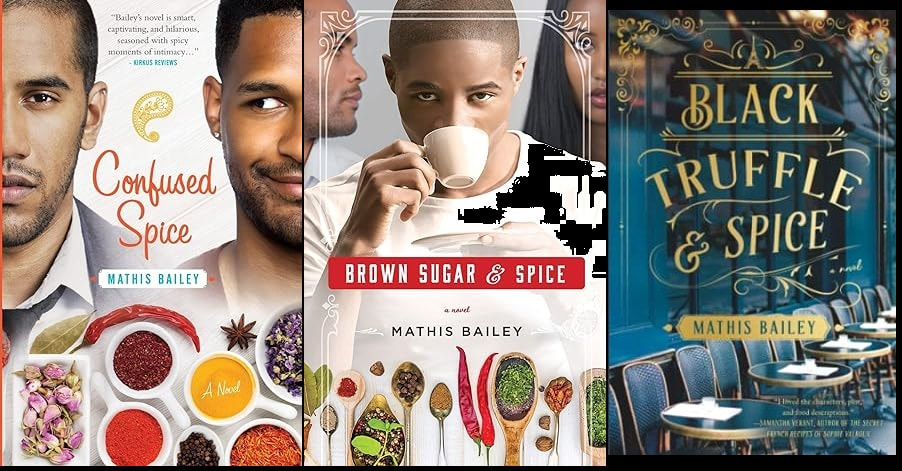

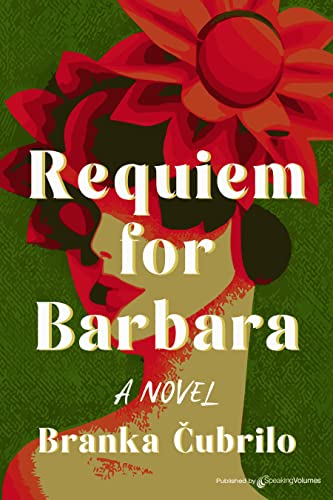


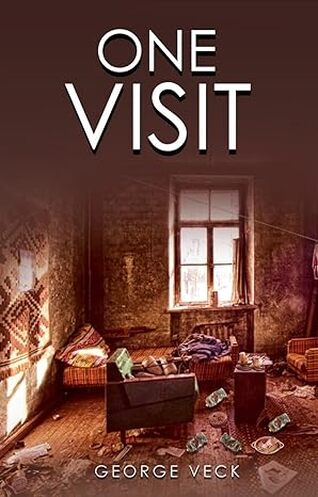


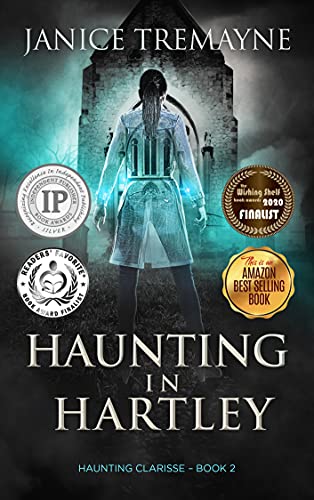





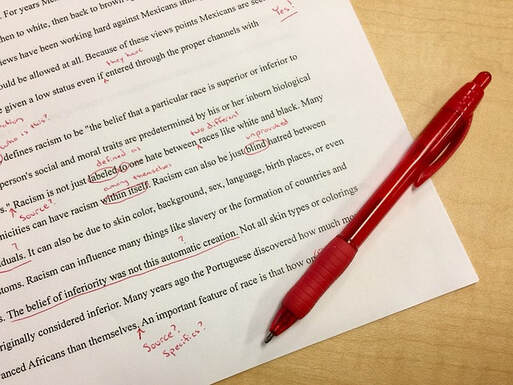







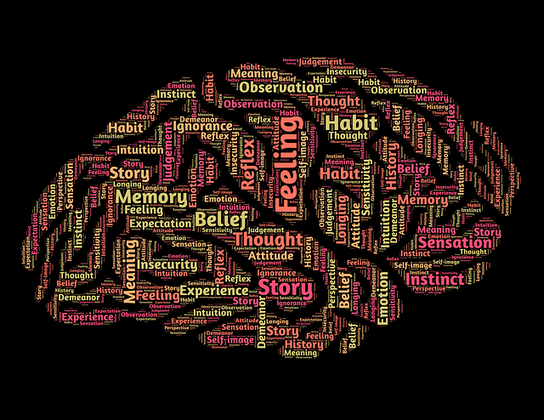




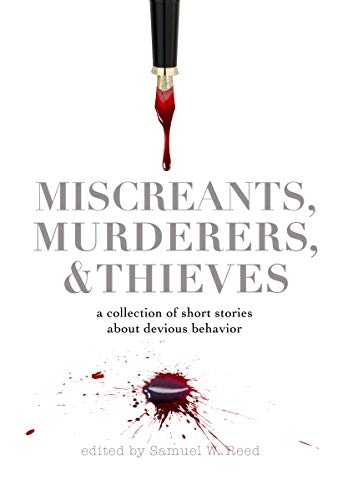





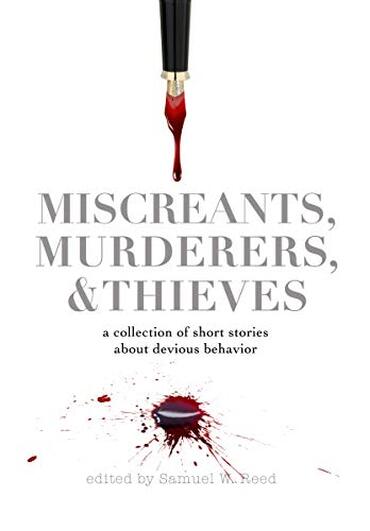


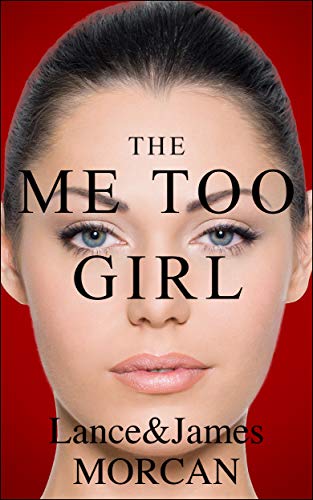


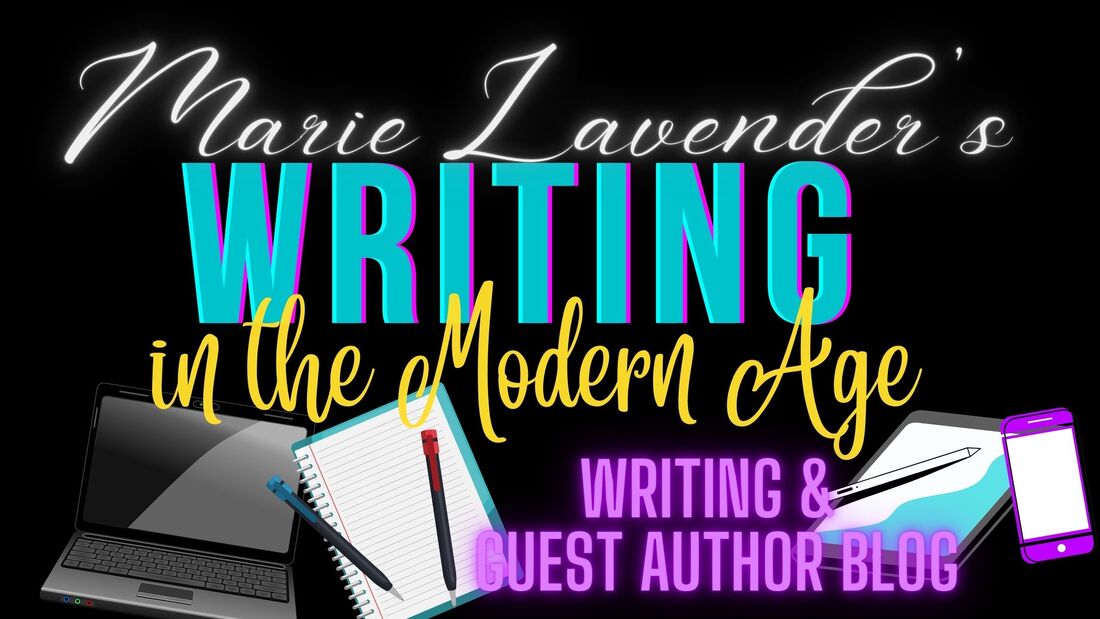

 RSS Feed
RSS Feed

